- Over 1 million successful rentals
- Popular countries
- Popular regions
- Popular cities
- Popular airports
- Car Hire United Kingdom
- Car Hire Spain
- Car Hire United States
- Car Hire Italy
- Car Hire France
- Car Hire Portugal
- Car Hire Switzerland
- Car Hire Ireland
- Car Hire Greece
- Car Hire Cyprus
- Car Hire Germany
- Car Hire Turkey
- Car Hire South Africa
- Car Hire Australia
- Car Hire Austria
- Car Hire Croatia
- Car Hire Canada
- Car Hire Netherlands
- Car Hire Poland
- Car Hire Denmark
- Car Hire England
- Car Hire Scotland
- Car Hire Florida
- Car Hire California
- Car Hire Majorca
- Car Hire Sicily
- Car Hire Tenerife
- Car Hire Crete
- Car Hire Sardinia
- Car Hire Gran Canaria
- Car Hire Wales
- Car Hire Madeira
- Car Hire Fuerteventura
- Car Hire Menorca
- Car Hire Kefalonia
- Car Hire Channel Islands
- Car Hire Corsica
- Car Hire Isle of Man
- Car Hire Azores
- Car Hire Santorini
- Car Hire London
- Car Hire Geneva
- Car Hire Malaga
- Car Hire Faro
- Car Hire Alicante
- Car Hire Manchester
- Car Hire Dublin
- Car Hire Edinburgh
- Car Hire Palma de Mallorca
- Car Hire Orlando
- Car Hire Paphos
- Car Hire Nice
- Car Hire Lisbon
- Car Hire Milan
- Car Hire Birmingham
- Car Hire Larnaca
- Car Hire Bristol
- Car Hire Glasgow
- Car Hire Los Angeles
- Car Hire San Francisco
- Car Hire London Heathrow Airport
- Car Hire Geneva Airport (Switzerland)
- Car Hire Malaga Airport
- Car Hire London Gatwick Airport
- Car Hire Faro Airport
- Car Hire Alicante Airport
- Car Hire Manchester Airport
- Car Hire Dublin Airport
- Car Hire Edinburgh Airport
- Car Hire Mallorca Airport
- Car Hire Orlando International Airport
- Car Hire Paphos Airport
- Car Hire London Stansted Airport
- Car Hire Nice Airport
- Car Hire Lisbon Airport
- Car Hire Larnaca Airport
- Car Hire Birmingham Airport
- Car Hire Geneva Airport (France)
- Car Hire Los Angeles International Airport
- Car Hire Bristol Airport
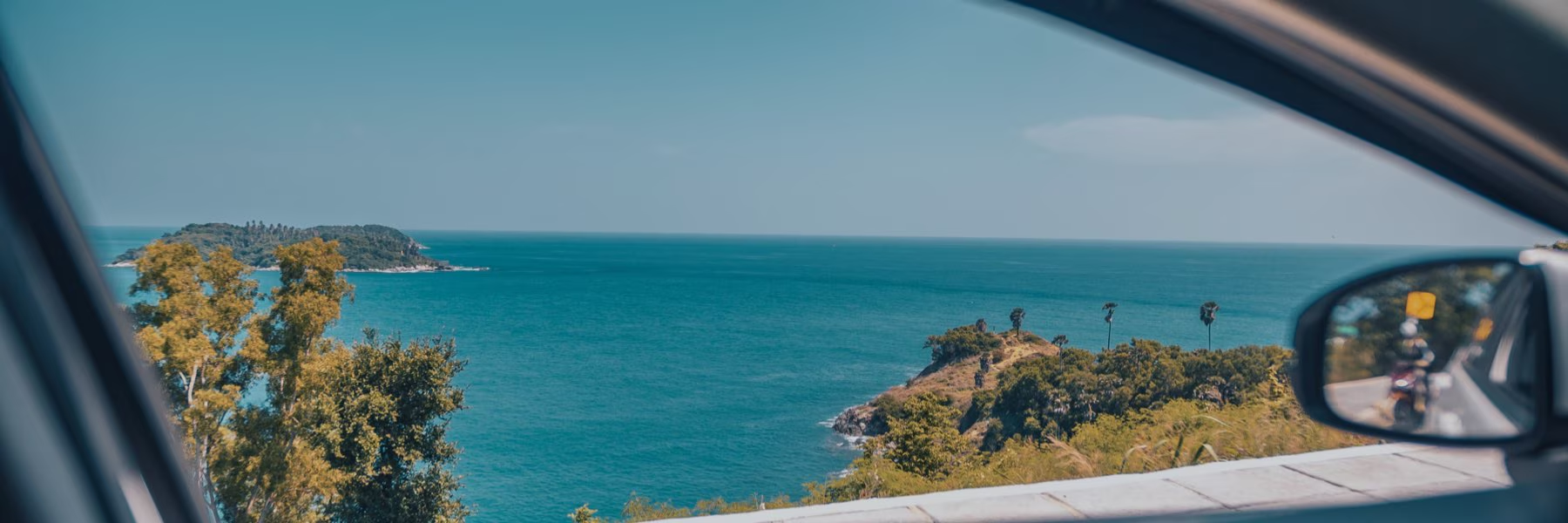
Car Hire Thailand
Save time and money. We compare the offers of car rental companies in Thailand on your behalf.
- Free cancellation Up to 48 hours prior to the scheduled pick-up time
- Best price guarantee Have you found a better price? Let us know and we will make you a better offer.
- 24000+ pick-up locations Locations around the world

Compare Car Hire
Carrentals.co.uk offers simple and straightforward car hire comparison services. We don't add a penny to your quotes!
Car rental offers in Thailand
Whether you're looking for a small rental car or a station wagon for the entire family, we will always have a suitable vehicle at the lowest price. Below are some examples from our selection in Thailand.

-
Hertz From£ 14 /day -
Chic Car Rent From£ 15 /day -
Sixt From£ 17 /day

-
Drive Hellas From£ 15 /day

-
Hertz From£ 16 /day -
Chic Car Rent From£ 19 /day -
Yesaway From£ 20 /day

-
Drive car rental Thailand From£ 18 /day

-
Drive Hellas From£ 19 /day

-
Drive car rental Thailand From£ 20 /day

-
Drive car rental Thailand From£ 21 /day

-
Yesaway From£ 24 /day

-
Drive car rental Thailand From£ 24 /day

-
Drive Hellas From£ 12 /day -
National Car Rental From£ 14 /day -
Drive car rental Thailand From£ 14 /day

-
Drive Hellas From£ 12 /day -
Alamo From£ 14 /day -
National Car Rental From£ 14 /day

-
Drive Hellas From£ 16 /day -
National Car Rental From£ 16 /day -
Drive car rental Thailand From£ 18 /day

-
Alamo From£ 13 /day -
National Car Rental From£ 18 /day -
Yesaway From£ 18 /day

-
Hertz From£ 15 /day -
Thrifty From£ 16 /day -
Chic Car Rent From£ 17 /day

-
Drive Hellas From£ 16 /day -
National Car Rental From£ 17 /day -
Drive car rental Thailand From£ 18 /day

-
Hertz From£ 17 /day -
Chic Car Rent From£ 21 /day -
Thrifty From£ 23 /day

-
Alamo From£ 19 /day -
Yesaway From£ 20 /day -
National Car Rental From£ 27 /day

-
Yesaway From£ 20 /day

-
Alamo From£ 13 /day -
Thrifty From£ 15 /day -
Enterprise From£ 15 /day

-
Hertz From£ 15 /day -
Drive Hellas From£ 18 /day -
Drive car rental Thailand From£ 20 /day

-
Hertz From£ 17 /day -
Drive car rental Thailand From£ 23 /day -
Drive Hellas From£ 24 /day

-
Thrifty From£ 16 /day -
Drive Hellas From£ 16 /day -
Drive car rental Thailand From£ 17 /day

-
Drive car rental Thailand From£ 18 /day -
National Car Rental From£ 19 /day -
Drive Hellas From£ 20 /day

-
National Car Rental From£ 18 /day -
Drive Hellas From£ 18 /day

-
Alamo From£ 19 /day -
Hertz From£ 20 /day -
Thrifty From£ 21 /day

-
National Car Rental From£ 18 /day -
Drive Hellas From£ 18 /day -
Drive car rental Thailand From£ 23 /day

-
Drive Hellas From£ 18 /day -
Drive car rental Thailand From£ 22 /day -
Sixt From£ 28 /day

-
Alamo From£ 15 /day -
Drive Hellas From£ 18 /day -
National Car Rental From£ 22 /day

-
Thai Rent A Car From£ 16 /day

-
Thai Rent A Car From£ 19 /day

-
Thrifty From£ 20 /day -
Hertz From£ 22 /day -
Chic Car Rent From£ 23 /day

-
Alamo From£ 21 /day -
Drive Hellas From£ 24 /day -
National Car Rental From£ 24 /day

-
National Car Rental From£ 22 /day -
Drive Hellas From£ 23 /day -
Alamo From£ 23 /day

-
Yesaway From£ 25 /day -
Chic Car Rent From£ 30 /day

-
Yesaway From£ 23 /day -
Chic Car Rent From£ 26 /day

-
Yesaway From£ 25 /day -
Alamo From£ 25 /day -
National Car Rental From£ 34 /day

-
Drive Hellas From£ 18 /day -
National Car Rental From£ 30 /day

-
Drive Hellas From£ 18 /day -
Drive car rental Thailand From£ 24 /day -
National Car Rental From£ 30 /day

-
Drive Hellas From£ 20 /day -
National Car Rental From£ 30 /day

-
Alamo From£ 21 /day -
Drive car rental Thailand From£ 24 /day -
Enterprise From£ 26 /day

-
Alamo From£ 22 /day -
Enterprise From£ 23 /day -
Drive car rental Thailand From£ 24 /day

-
Drive Hellas From£ 22 /day -
Drive car rental Thailand From£ 28 /day -
National Car Rental From£ 30 /day

-
Drive car rental Thailand From£ 24 /day

-
Alamo From£ 24 /day -
Enterprise From£ 27 /day -
Yesaway From£ 56 /day

-
Drive car rental Thailand From£ 27 /day

-
Alamo From£ 27 /day -
Drive Hellas From£ 29 /day -
National Car Rental From£ 30 /day

-
Alamo From£ 27 /day -
Drive Hellas From£ 30 /day -
National Car Rental From£ 30 /day

-
Enterprise From£ 29 /day

-
Drive Hellas From£ 29 /day -
Alamo From£ 32 /day -
National Car Rental From£ 32 /day

-
Drive Hellas From£ 33 /day -
Yesaway From£ 36 /day -
National Car Rental From£ 36 /day

-
Enterprise From£ 33 /day

-
Thai Rent A Car From£ 34 /day

-
Thai Rent A Car From£ 34 /day

-
Thai Rent A Car From£ 37 /day

-
Alamo From£ 33 /day -
National Car Rental From£ 34 /day

-
Alamo From£ 39 /day -
Enterprise From£ 45 /day -
National Car Rental From£ 46 /day

-
Alamo From£ 45 /day -
Enterprise From£ 50 /day -
National Car Rental From£ 51 /day

-
Drive Hellas From£ 53 /day -
Sixt From£ 58 /day

-
Drive Hellas From£ 55 /day -
Sixt From£ 63 /day

-
Drive car rental Thailand From£ 53 /day

-
Drive car rental Thailand From£ 53 /day

-
Drive car rental Thailand From£ 56 /day

-
Drive car rental Thailand From£ 54 /day

-
Drive Hellas From£ 20 /day

-
Drive Hellas From£ 26 /day

-
Sixt From£ 37 /day

-
Sixt From£ 42 /day

-
Sixt From£ 42 /day

-
Sixt From£ 49 /day

-
Drive Hellas From£ 30 /day -
National Car Rental From£ 30 /day -
Drive car rental Thailand From£ 35 /day

-
Drive Hellas From£ 31 /day -
National Car Rental From£ 34 /day -
Drive car rental Thailand From£ 41 /day

-
National Car Rental From£ 36 /day -
Drive Hellas From£ 37 /day -
Drive car rental Thailand From£ 46 /day

-
National Car Rental From£ 37 /day -
Drive Hellas From£ 37 /day

-
Drive Hellas From£ 38 /day -
National Car Rental From£ 41 /day

-
Drive Hellas From£ 40 /day -
National Car Rental From£ 40 /day -
Drive car rental Thailand From£ 54 /day

-
Drive car rental Thailand From£ 47 /day -
Yesaway From£ 69 /day

-
Drive car rental Thailand From£ 55 /day -
Yesaway From£ 71 /day

-
Alamo From£ 60 /day -
Enterprise From£ 65 /day

-
Drive car rental Thailand From£ 22 /day

-
National Car Rental From£ 22 /day -
Alamo From£ 23 /day -
Enterprise From£ 27 /day

-
Yesaway From£ 25 /day

-
National Car Rental From£ 22 /day -
Alamo From£ 23 /day -
Thai Rent A Car From£ 25 /day

-
Yesaway From£ 23 /day

-
Drive car rental Thailand From£ 25 /day

-
Thai Rent A Car From£ 25 /day

-
National Car Rental From£ 28 /day -
Alamo From£ 29 /day -
Enterprise From£ 33 /day

-
Thrifty From£ 27 /day -
Hertz From£ 29 /day

-
Drive Hellas From£ 18 /day -
Drive car rental Thailand From£ 22 /day -
Sixt From£ 28 /day

-
Drive Hellas From£ 22 /day -
Drive car rental Thailand From£ 26 /day -
Sixt From£ 33 /day

-
Drive Hellas From£ 29 /day -
Drive car rental Thailand From£ 32 /day -
Sixt From£ 34 /day

-
Drive Hellas From£ 30 /day -
Drive car rental Thailand From£ 36 /day -
Sixt From£ 38 /day

-
Drive Hellas From£ 30 /day

-
Drive Hellas From£ 33 /day -
Drive car rental Thailand From£ 44 /day

-
Drive Hellas From£ 35 /day -
Drive car rental Thailand From£ 49 /day

-
Drive Hellas From£ 36 /day

-
Sixt From£ 37 /day
Popular cities in Thailand
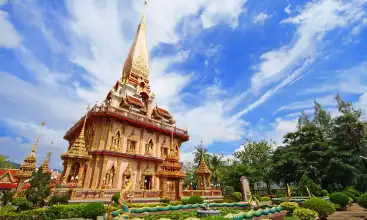
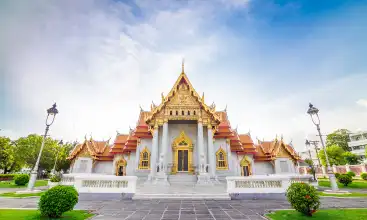

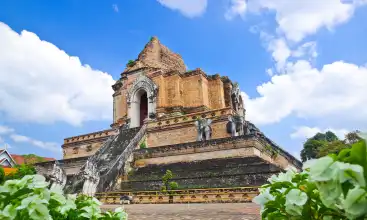
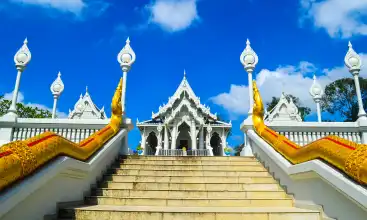
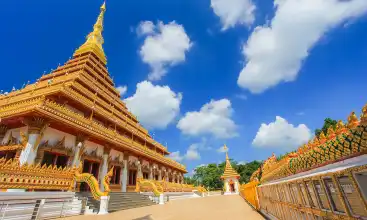
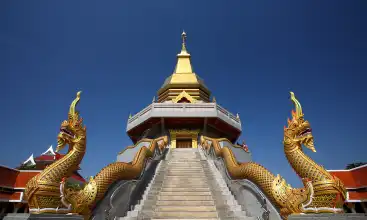
Popular rental locations in Thailand
-
Car Hire Phuket AirportFrom
£ 13 /day -
Car Hire Samui Island AirportFrom
£ 13 /day -
Car Hire Bangkok International AirportFrom
£ 13 /day -
Car Hire Krabi Airport OfficeFrom
£ 13 /day -
Car Hire Khon Kaen AirportFrom
£ 13 /day -
Car Hire Udon Thani AirportFrom
£ 13 /day -
Car Hire Surat Thani - AirportFrom
£ 14 /day
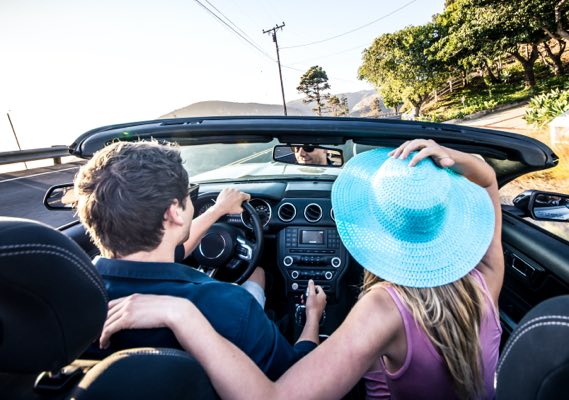
When to book a rental car in Thailand
Thailand - When is the most affordable time to rent a mini class car?
At this destination (Thailand), September is the most affordable time to rent a mini class car with an average daily rate of
Thailand - When is the most affordable time to rent a economy class car?
At this destination (Thailand), September is the most affordable time to rent a economy class car with an average daily rate of
Thailand - When is the most affordable time to rent a compact class car?
At this destination (Thailand), September is the most affordable time to rent a compact class car with an average daily rate of
Thailand - When is the most affordable time to rent an intermediate class car?
At this destination (Thailand), September is the most affordable time to rent a intermediate class car with an average daily rate of
Thailand - When is the most affordable time to rent a standard class car?
At this destination (Thailand), September is the most affordable time to rent a standard class car with an average daily rate of
Thailand - When is the most affordable time to rent a full-size car?
At this destination (Thailand), September is the most affordable time to rent a full-size class car with an average daily rate of
Thailand - When is the most affordable time to rent a luxury car?
At this destination (Thailand), February is the most affordable time to rent a luxury class car with an average daily rate of
Thailand - When is the most affordable time to rent a station wagon?
At this destination (Thailand), September is the most affordable time to rent a station wagon with an average daily rate of
Thailand - When is the most affordable time to rent a SUV?
At this destination (Thailand), September is the most affordable time to rent an SUV with an average daily rate of
Thailand - When is the most affordable time to rent a MPV?
At this destination (Thailand), May is the most affordable time to rent an mpv with an average daily rate of
Thailand - When is the most affordable time to rent a minivan?
At this destination (Thailand), September is the most affordable time to rent a minibus with an average daily rate of
Car rental locations in Thailand
Carrentals.co.uk compares rental car prices at the following destinations

Thailand Guide
Thailand is best explored by rental car. Carrentals.co.uk has over 14 pick-up locations in Thailand. This means there is always a pick-up location close to your destination.
Most popular car hire locations in Thailand
Driving
From mountains, lowlands, cities and historical sites to beaches, Thailand is a diverse country with much to offer. A car is the ideal way to explore and reach the out-of-the-way, undiscovered areas of the Andaman and Gulf coasts, as well as the Mekong River banks and national parks. There are a total of nearly 40,00 paved roads in the kingdom, making getting around by car simple and enjoyable.
Driving Tips for Thailand
Navigating the roads in Thailand is easy, as signs on all major routes are in both Thai and English, and roads are mostly in good condition, with plenty of petrol stations and rest stops along the way. Drivers should be aware of large trucks and motorbikes while on the road here.
Driving licences: an International Driving Licence should be obtained to drive in Thailand for up to six months, although in many cases a UK driving licence is sufficient.
Which side does Thailand drive on: the left.
Speed limits:
Highways and freeways: 62-74mph (100-120kph)
Major roads and small highways: 50mph (80kph)
Outside built-up areas: 37-50mph (60-80kph)
Built-up areas: 37mph (60kph)
School zones: 18mph (30kph)
Alcohol limits: 0.05 per cent compared to the UK’s limit of 0.08 per cent. This limit is rarely enforced so drivers should be extra cautious when driving at night.
Driving age: 18 years; 21 years for car rental.
Seatbelts: mandatory for those in the front seat. There are no laws regarding child restraints, but it is highly recommended to use them for children shorter than 1.5 metres.
Mobile phones and GPS: it is illegal to use a mobile phone while driving, although this law is hardly ever implemented. GPS is allowed and is a great way to find out-of-the-way places that may not be marked on a map.
Cost of fuel in Thailand: noticeably cheaper than in the UK for both petrol and diesel.
Car hire and fuel payment: all major petrol stations accept credit cards for payment. Car hire companies require a credit card for a deposit and accept them for payment.
Insurance: third-party insurance is included with car rental but it is highly recommended to get full coverage as many locals drive without insurance.
Traffic and parking: driving in Bangkok should be avoided, while other cities such as Chang Mai, Phuket and Pattaya get congested at times. Parking is easy to find outside of the major cities, but it is prohibited to park on yellow lines. Expect hefty fines and possible towing for ignoring parking regulations.
Transport
Trains
Trains enter Thailand from Butterworth (Malaysia) and Dongphosy (Laos), terminating in Bangkok. They are slow but cheap and comfortable, with the fare for an air-conditioned, second class sleeper from Dongphosy to Bangkok being around £16. The inter-city railway network within the country is limited, with just four lines which reach different areas from Bangkok. Services on these are operated by the State Railway of Thailand, which also operates commuter trains. A second-class sleeper train with air conditioning from Bangkok to Chang Mai costs around £16, while the same class to Surat Thani from Bangkok is around the same price. To book tickets, visit Thai Rail Ticket. Bangkok has Skytrain and underground metro networks that offer a fast way to get around the city. Fares are based on zones and are between £0.30 and £0.80 for single rides. There is also a railway link between the main airport and the city centre which costs around £3 on the express train and under £1 on the regular train.
Taxis
Taxis are a dime a dozen in Bangkok and can be flagged down anywhere in the city. They are a fast and comfortable way to reach areas of the city that the Skytrain and Metro do not reach, and are quite cheap. Taxis run on a metre, with fares starting at £0.70 for the first 1.24 miles and increasing by £0.08 for each 0.62 miles thereafter. Taxis can also be found in Chiang Mai, whereas elsewhere the songthaew (shared pick-up taxi) is used. Songthaew usually run on fixed routes but are also available for private hire. Tuk-tuk (three-wheeled motorized rickshaws) are a popular way to get around Bangkok, Chiang Mai and Phuket, and although they are fun, they are more expensive than regular taxis. They do not run on a metre so it is important to negotiate a price before zooming off.
Buses
International buses arrive in Hat Yai from Malaysia and Singapore, and in Nong Khai from Laos. Thailand’s inter-city bus network is phenomenal, with nearly every city, town and village accessible by bus. The most reliable bus company is the Transport Company which operates state-run buses, though there are hundreds of companies that run private buses. A VIP bus (32 seats) from Bangkok to Chang Mai costs around £16, while the same type of bus to Phuket from the capital is around £20. There are also cheaper 50-seat local buses that travel throughout the country, but they are slower as they make many stops along the way. Minibuses are also available on select routes and are faster than local buses but drivers tend to speed. Bangkok has an extensive public bus network that is inexpensive, with fares costing between £0.10 and £0.40.
Ferries
Ferries run between Satun and Langkawi (Malaysia) between November and May, and the fare for a one-way journey is around £6. This service is run by Langkawi Ferry Service and no reservation is required. There is also a slow boat into Chiang Kong from Luang Prabang (Laos) which takes three days. In Bangkok, it is possible to travel via the Chao Phraya Express Boat along the Chao Phraya River and via the Saen Saep Express Boat, which runs through the canals in central Bangkok. Fares depend on distance travelled but are never more than £0.60. Boats are significant in Thailand transportation for reaching all of its outlaying islands including Samui, with many routes available from the likes of Surat Thani and Krabi.
Airports
Bangkok’s Suvarnabhumi Airport is the largest and busiest airport in the kingdom, followed by Phuket International Airport and Chiang Mai International Airport. Suvarnabhumi Airport is the only airport in Thailand that offers direct flights to London-Heathrow with British Airways. The alternative is to fly through Hong Kong, Singapore, Taipei, Dubai, Bahrain or Kuala Lumpur. Domestic air travel is popular as a result of low-cost airlines and is a fast and comfortable way to get from one destination to the next. A one-way flight from Bangkok to Chiang Mai can be had for around £35, while a one-way fare to Phuket from the capital costs much the same. Fares fluctuate throughout the year but deals can always be found.
Explore
Exploring Thailand
There is much to see across Thailand’s 77 provinces, with a wealth of diversity at every turn. Most travellers start their exploration in Bangkok, the lively, massive capital city and the centre of modernism. Some of the country’s best shopping can be had here, and there are many famous attractions, including the Grand Palace, Wat Pho, Jim Thompson's House, Lumphini Park and Siam Ocean World, to take in.
Many visitors travel north to Chiang Mai, which is split into the old walled city and the new city. Within the old city’s walls are a wealth of beautiful temples, such as Wat Phra Singh and Wat Chiang Man. There are also plenty of parks, museums and nature reserves, and it is a stepping stone to the northern hill tribes and the Golden Triangle.
Phuket is the most visited destination in the south and is famed for its beaches and nightlife. The Sino-Portuguese Old Phuket has some stunning architecture to snap, while the zoo, butterfly farm and aquarium offer families a great opportunity to get out of the sun.
The ancient capital of Ayutthaya is a historian’s dream as it is dotted with ancient sites that make it a UNESCO World Heritage site. These sites include the ruins of Wat Thammikarat, Wat Phra Mahathat and the 15th century Phet Fortress.
The less visited northeast, which is also known as Isaan, is home to beautiful Khmer architecture, vineyards, the Mekong River and the magnificent Khao Yai National Park.
Our Travel Editor’s Recommended Drives
Phuket to Krabi – a stunning 1 hour, 30 minute drive south along the Andaman coast passing by Phang Nga Bay and the stunning limestone karts that make this area so famous.
Mae Hong Song loop – starting in Chiang Mai, this 373-mile drive is the best way to discover Northern Thailand’s lush mountains as it takes passengers along windy roads and through the hills and close to the Burmese border.
Kanchanaburi overnighter – visit the legendary Bridge over the River Kwai on an overnight trip from Bangkok. Make a stop at the Floating Market in the morning and return via Ayutthaya to explore its historical sites.
Mekong meander – follow this magnificent river through the little visited Isaan region, passing over the Loei Mountains and travelling on to Nong Khai before continuing east to Bueng Kan.
Holidays and Festivals
New Year’s Day (1 January)
Chinese New Year (January/February)
Makha Bucha (February or March)
Songkran (13-15 April)
Coronation Day (5 May)
Wisakha Bucha (May)
Khao Phansa (July)
Queen’s Birthday (12 August)
Chulalongkorn Day (23 October)
Loy Krathong (November)
King’s Birthday (5 December)
Constitution Day (10 December)
Weather
Thailand has two seasons, wet and dry, yet the seasons are not consistent throughout the country. The Gulf coast experiences its heaviest rainfall in November and December, while the rest of the country has August and September as its monsoon season. There is rain in October in all regions of the country, while April is the hottest month, with temperatures reaching highs of 40°C. The year-round temperature is between 20-35°C though it can get as cold as 5°C in the north.
Practical Stuff
Thailand Travel Tips
Close to a million Britons visit Thailand each year, with many visiting year after year. This popularity is largely thanks to the welcoming, friendly locals, the laid-back lifestyle, the great infrastructure and the large amount of affordable attractions and services. Travelling by road is easy, but reading these tips will help you to avoid unnecessary problems.
Thailand contact numbers
Country code - (+66)
Emergency services – 191
British Embassy – +66 2 305 8333
British Consular Emergency Services – +66 2 305 8333
Irish Embassy – +66 2 677 7500
Australian Embassy – +66 2 344 6300
Canadian Embassy – +66 2 636 0540
US Embassy – +66 2 205 4000
Money matters
The currency used in Thailand is the Thai baht, with banknotes available in denominations of 20, 50, 100, 500 and 1,000. One baht is equal to 100 satang, with coins usually found in 1, 2, 5 and 10 baht, and 25 and 50 satang denominations. Currency exchange booths can be found in all tourist areas, while ATMs are everywhere. There may be a fee involved when withdrawing money from overseas using an ATM.
Health and safety
There are no vaccinations required to enter Thailand though it is advised travellers get vaccinations against typhoid and rabies, and to check that regular vaccinations are up to date. Malaria and dengue fever are problems, so it is imperative to protect yourself against mosquito bites. Travellers’ diarrhoea can be avoided by selecting where to eat meals carefully and by taking caution when eating street food. Dehydration can be a problem due to the extreme humidity. STDs are common in the sex industry although it is driving scooter rentals that cause the most life-threatening danger to visitors.
Fitting in…
Thais are extremely relaxed and welcoming, and rarely get angry in public as it is considered ill mannered. Their attitude of ‘mai pen rai’ (never mind) is a great way to avoid a sticky situation. Thais love their king and any sort of disrespect toward him or the royal family could result in imprisonment. It is important to dress respectably and to take note that nudity of any kind is prohibited in Thailand.
Visas for Thailand
Visitors from the UK, Canada, the US, Australia and every other western country can receive a 30-day stamp on arrival if entering by air or a 15-day stamp if entering by land or boat. Stays can be extended for an additional 10 days at any in-country immigration office. However, if you require a longer visa, it is best to apply in advance at a Thai embassy or consulate close to home where it is possible to receive a 60-day tourist visa, which can be extended for an additional 30 days in-country.
Electricity
The voltage used in Thailand is 220 Volts and 50 Hertz although different sockets can be seen throughout. Most sockets are capable of taking two flat or round pin plugs. This means that visitors from the UK need to rely on an adaptor in order to use their electronics.
Business hours
Businesses: 09:00 to 18:00, Monday to Friday
Government offices: 08:30 to 11:30 and 13:00 to 16:30, Monday to Friday
Shops: 10:00 to 21:00, Monday to Sunday
Banks: 08:30 to 15:30, Monday to Friday
Helpful phrases
Sawatdee - Hello
Karb khun – Thank you
Karuna - Please
Chai/mai chai – Yes/no
Poot pasaa angrit dai mai? - Do you speak English?
Mai kao jai – I don't understand
Chan poot tai mai pen – I don’t speak Thai
Nee tao rai? – How much is this?
U tee nai?... – Where is….?
Huong nam - toilet
To be polite, end suffix sentences with ka if you’re a lady and krap if you’re a man.
Practical information
-
CurrencyThai baht
-
Driving directionLeft
-
City speed limit80 km/h
-
Freeway speed limit90 km/h
-
LanguageThai
-
Popular car categoryEconomy
What most people want to know
The following questions and answers are a selection of the most popular questions. If you do not find the answer to your question, have a look at the Frequently Asked Questions page or contact us.
- Chic Car Rent
- Sixt
- Drive Hellas
- Thai Rent A Car
- National Car Rental
- Alamo
- Enterprise
- Budget
- Europcar
- Keddy By Europcar
- Hertz
- Thrifty
- Avis
- Drive car rental Thailand
- Red Spot Car Rental
- Yesaway
- Payless Car Rental
- Advantage Rent a Car
- Dollar Rent a Car